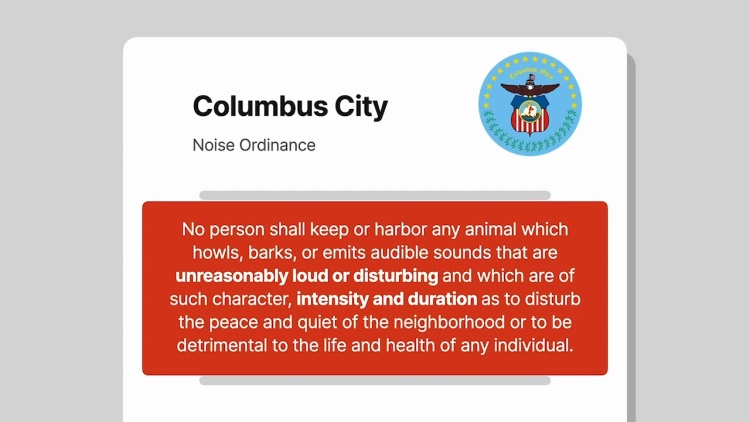Columbus v. Kim
Ohio Supreme Court
886 N.E.2d 217 (2008)
- Written by Craig Conway, LLM
Facts
The City of Columbus (plaintiff) cited Rebecca Kim (defendant) for violating a city ordinance after a neighbor complained that Kim’s dog barked loudly and constantly in her backyard for over an hour. At trial, Kim’s neighbor testified that the dog barked so loudly that it could be heard over the sound of his lawn mower and from inside his house with the windows closed and the air conditioning running. Additionally, a veterinarian who made a house call at the neighbor’s house to vaccinate the neighbor’s dogs corroborated the duration of the dog’s barking. The trial court concluded that the duration and intensity of the dog’s barking were sufficient to establish a violation. Kim was convicted of harboring an unreasonably loud or disturbing animal in violation of the city ordinance. Kim appealed, arguing that the ordinance was unconstitutionally vague. The court of appeals affirmed the conviction, concluding that the ordinance contained sufficient standards to place a person of ordinary intelligence on notice of what conduct is prohibited. In doing so, the appellate court found its judgment to conflict with State v. Ferraiolo, 748 N.E.2d 584 (2000), and certified the record to the Supreme Court of Ohio for review. The Supreme Court of Ohio granted review.
Rule of Law
Issue
Holding and Reasoning (Pfeifer, J.)
What to do next…
Here's why 907,000 law students have relied on our case briefs:
- Written by law professors and practitioners, not other law students. 47,100 briefs, keyed to 996 casebooks. Top-notch customer support.
- The right amount of information, includes the facts, issues, rule of law, holding and reasoning, and any concurrences and dissents.
- Access in your classes, works on your mobile and tablet. Massive library of related video lessons and high quality multiple-choice questions.
- Easy to use, uniform format for every case brief. Written in plain English, not in legalese. Our briefs summarize and simplify; they don’t just repeat the court’s language.





